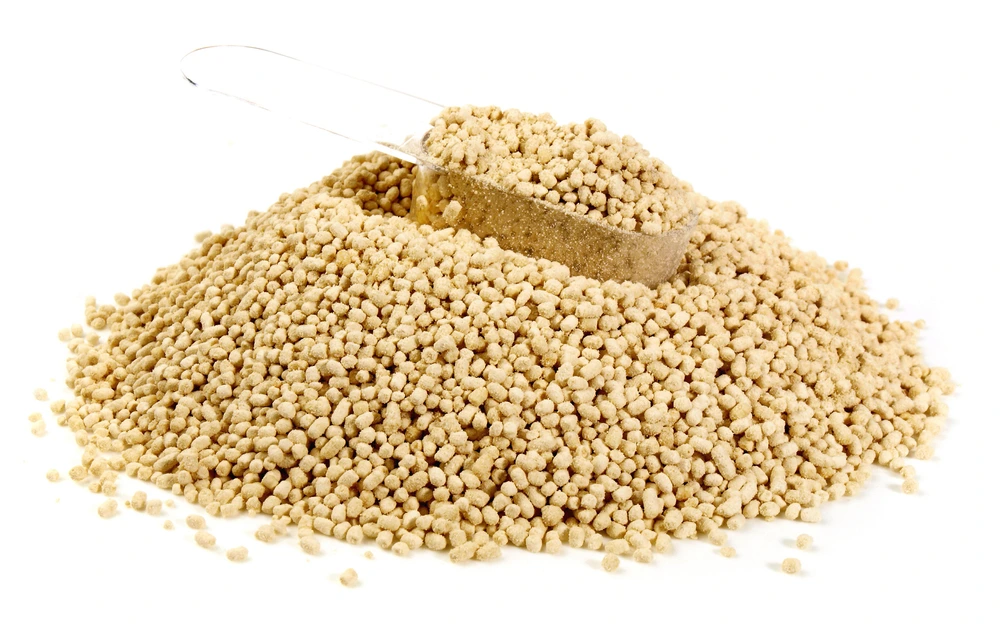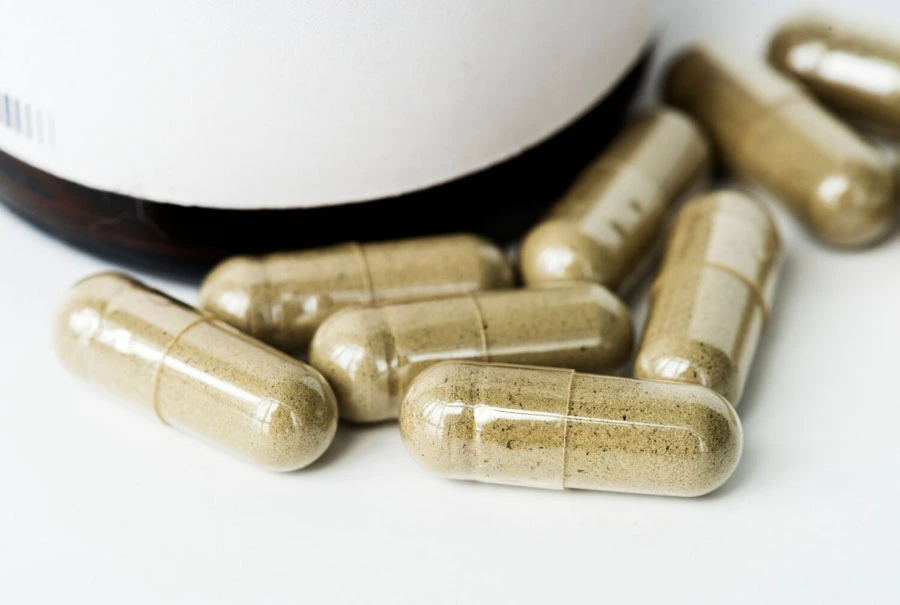In the evolving realm of health and nutrition, Lecithin stands out as a remarkable nutrient. With potential benefits ranging from cholesterol management to skin health, understanding Lecithin’s role in the diet becomes pivotal for health enthusiasts and casual dieters.
Brief Overview of Lecithin
Lecithin, a term derived from the Greek word ‘lekithos’ (meaning yolk), has become synonymous with promoting overall health. This lipid-rich substance plays a pivotal role in many bodily processes, impacting everything from digestion to nervous system function. It is also used for baking purposes.
Importance of Lecithin in the Diet
Our diet isn’t just about caloric intake; it’s a balance of essential nutrients that bolster our health. Lecithin, as a phospholipid, assists in the absorption of vitamins and other nutrients, ensuring optimal cellular function and fortifying the body’s vital organs.
Lecithin’s Dietary Benefits
Lecithin is more than just a dietary supplement; it’s a nutrient dynamo. From aiding fat absorption to reducing the risk of certain health conditions, it’s clear that Lecithin holds a prominent place in nutritional science.
What is Lecithin?
As a phospholipid, Lecithin is derived from several sources, including egg yolks, soybeans, and sunflower seeds. Its origin traces back to the mid-19th century when French scientist Maurice Gobley first isolated it from egg yolk.
The Role of Lecithin in the Body
Lecithin, composed mainly of fatty acids, choline, and inositol, ensures the integrity of cell membranes, facilitates fat transportation, and plays a pivotal role in nerve signaling.
Natural Sources of Lecithin
Soy lecithin, derived from soybeans, is one of the most common sources of this nutrient. Additionally, egg yolks, sunflower seeds, and certain oils are replete with Lecithin, offering an array of options for dietary inclusion.
The Nutritional Profile of Lecithin
Brimming with choline, fatty acids, and other vital nutrients, Lecithin isn’t just about lipid content. Its nutritional portfolio fortifies cell structure, promotes brain health, and ensures efficient metabolism.
How the Body Absorbs Lecithin
Lecithin’s amphiphilic nature allows it to emulsify fats, facilitating their absorption in the digestive tract. Once ingested, lecithin molecules interact with water and fats, enabling efficient nutrient assimilation.
Importance of Phosphatidylcholine in Lecithin
Phosphatidylcholine, a primary component of Lecithin, is integral to brain function, lipid metabolism, and cellular communication. Its role is so vital that a deficit can impair cognitive function and cellular integrity.
How Does Lecithin Benefit Cardiovascular Health?
Lecithin’s cholesterol-regulating abilities are noteworthy. Promoting the efflux of cholesterol and triglycerides from the liver aids in maintaining arterial health and reducing the risk of atherosclerosis.
The Role of Lecithin in Cholesterol Management
Lecithin has demonstrated its prowess in modulating cholesterol levels. By increasing the solubility of cholesterol in the blood, it prevents its accumulation in arteries, thus fostering cardiovascular health.
Studies Supporting Lecithin’s Heart-Health Benefits
Numerous research articles highlight Lecithin’s heart-friendly attributes. For instance, studies have illustrated that consistent lecithin intake can reduce LDL (bad cholesterol) levels and an elevation in HDL (good cholesterol) levels.
Lecithin and Brain Health
Lecithin’s richness in choline, a precursor to the neurotransmitter acetylcholine, underscores its significance in cognitive function, memory retention, and overall brain health.
The Role of Lecithin in Cognitive Function
Beyond just brain fuel, Lecithin enhances nerve transmission and may even play a role in mitigating the onset of degenerative brain conditions.
Studies Supporting Lecithin’s Brain Health Benefits
Several studies have drawn correlations between lecithin supplementation and improved cognitive function, especially in conditions like Alzheimer’s, where choline levels are often deficient.
Lecithin and Liver Health
The liver, our primary detoxifying organ, requires Lecithin for optimal function. By aiding in fat digestion and absorption, Lecithin ensures that fats don’t accumulate in the liver, thus preventing fatty liver disease.
The Impact of Lecithin on Liver Fat Content
Lecithin’s role in emulsifying and breaking down fats is indispensable to liver health. Without it, there’s a heightened risk of fat accumulation, leading to conditions like non-alcoholic fatty liver disease.
Studies Supporting Lecithin’s Liver Health Benefits
Scientific research has consistently highlighted Lecithin’s protective effect on the liver. Many studies support its ability to reduce liver fat content and alleviate symptoms of fatty liver disease.
The Benefits of Lecithin for Weight Management
In the context of weight management, Lecithin acts as a silent guardian. By facilitating the breakdown of fats, it aids in their efficient utilization, preventing unwarranted fat accumulation.
The Mechanism of Lecithin in Fat Burning
Lecithin kickstarts the process of lipolysis, where fats are broken down into their constituent fatty acids, ready to be utilized for energy.
The Impact of Lecithin on Metabolism
By ensuring a smooth flow of fats in the bloodstream and promoting their utilization, Lecithin indirectly aids in elevating metabolic rates and fostering weight loss.
Lecithin and Skin Health
Lecithin, rich in phospholipids, hydrates the skin, ensuring its suppleness. Fortifying skin cell membranes safeguards the skin against external aggressors, ensuring a radiant glow.
The Impact of Lecithin on Skin Conditions
For those plagued with skin conditions like eczema or psoriasis, Lecithin might offer respite. Its anti-inflammatory properties can alleviate skin inflammation, promoting healing.
Studies Supporting Lecithin’s Skin Health Benefits
The research underscores Lecithin’s role in skin health. Studies indicate that its topical application can accelerate wound healing, reduce skin inflammation, and even mitigate symptoms of challenging skin disorders.
Digestive Health and Lecithin
Lecithin’s emulsifying properties are a boon for the digestive system. By aiding fat digestion and absorption, it ensures the optimal functioning of the digestive tract.
Lecithin’s Role in Maintaining Gut Health
Gut health is paramount for overall well-being. Lecithin promotes the absorption of fat-soluble vitamins and other nutrients, ensuring a healthy gut lining and potentially reducing the risk of disorders like inflammatory bowel disease.
Lecithin and its Impact on Digestive Disorders
In conditions like ulcerative colitis, Lecithin’s soothing properties can be a game-changer. Its ability to reduce inflammation and promote healing has garnered attention in the medical community.
Lecithin and Athletic Performance
For athletes, energy production is the cornerstone of performance. Lecithin aids in efficiently utilizing fats for energy, ensuring sustained performance during endurance sports.
The Impact of Lecithin on Muscle Recovery
Post-exercise, muscles require nutrients for repair. By enhancing nutrient absorption, Lecithin can expedite muscle recovery and reduce exercise-induced muscle damage.
Studies Supporting Lecithin’s Athletic Performance Benefits
Studies vouch for Lecithin’s role in athletic performance, from enhancing endurance to fostering recovery. Regular supplementation has been correlated with improved stamina and reduced muscle soreness post-exercise.
Lecithin Supplementation
While foods offer a natural source of Lecithin, supplements provide a concentrated dose. Available in granules, powders, or liquids, they cater to those seeking to amplify their lecithin intake.
How to Choose the Right Lecithin Supplement
It’s not just about picking any lecithin supplement. Factors like sourcing (soy lecithin vs. sunflower lecithin), purity, and absence of allergens play a pivotal role in making an informed choice.
Recommended Dosage and Usage
While Lecithin’s safety profile is commendable, adhering to recommended dosages is crucial. Typically, doses range between 1-2 grams daily, but consulting with a healthcare professional ensures personalized advice.
Dietary Sources of Lecithin
Natural foods, a treasure trove of nutrients, are replete with Lecithin. Soybeans, egg yolks, and even certain nuts offer a hearty dose of this lipid-rich nutrient.
Incorporating Lecithin-Rich Foods into the Diet
While supplements are an option, nothing beats the wholesomeness of natural foods. Incorporating lecithin-rich foods through scrambled eggs or a handful of sunflower seeds can seamlessly elevate one’s dietary lecithin content.
Creating a Balanced Diet with Lecithin
While Lecithin is integral, a balanced diet encompasses a spectrum of nutrients. Incorporate a mix of protein, fats, carbohydrates, and Lecithin to ensure dietary harmony.
Risks and Considerations
Like any nutrient, excessive intake of Lecithin can have its downsides. Though generally safe, some individuals might experience side effects like digestive discomfort or allergic reactions, especially from soy-derived products.
The Importance of Moderation
In the world of nutrition, moderation is key. While Lecithin offers myriad benefits, consuming it within recommended limits is essential to avert potential side effects.
Consulting with a Healthcare Professional
Before embarking on any supplementation journey, it’s prudent to consult with a healthcare professional. They offer personalized advice, ensuring safety and efficacy.
Myths and Misconceptions about Lecithin
Lecithin, like many nutrients, is shrouded in myths. Contrary to popular belief, it isn’t just a weight loss supplement. Its benefits extend far beyond, from brain health to skin vitality.
Debunking Misinformation about Lecithin’s Dietary Benefits
Another misconception is that Lecithin can cure diseases. While it offers therapeutic benefits, viewing it as a panacea for all ailments is a stretch. Relying on scientific evidence ensures a balanced perspective.
The Science behind Lecithin’s Health Benefits
For every claim about Lecithin, there’s a study backing it. The nutrient’s benefits aren’t mere hearsay; they’re grounded in rigorous research, underscoring its significance in health and nutrition.
Conclusion
In the vast landscape of nutrients, Lecithin emerges as a multifaceted marvel. Its role in ensuring optimal heart, liver, brain, and skin health is undeniable, making it a staple in health-conscious diets. For those on the quest for optimal health, incorporating Lecithin is non-negotiable. Its plethora of benefits, backed by scientific research, attests to its dietary importance.
Frequently Asked Questions
Is there a difference between liquid and granulated lecithin supplements?
The primary difference lies in the form and application. While granulated Lecithin is easier for culinary uses, liquid Lecithin might be preferred for smooth blending in liquids.
How long does it take to see benefits from lecithin supplementation?
The duration varies among individuals, but some might notice benefits within a few weeks of consistent intake.
Can Lecithin support joint health?
The anti-inflammatory properties of Lecithin may provide relief in inflammatory joint conditions, although more research is needed.





